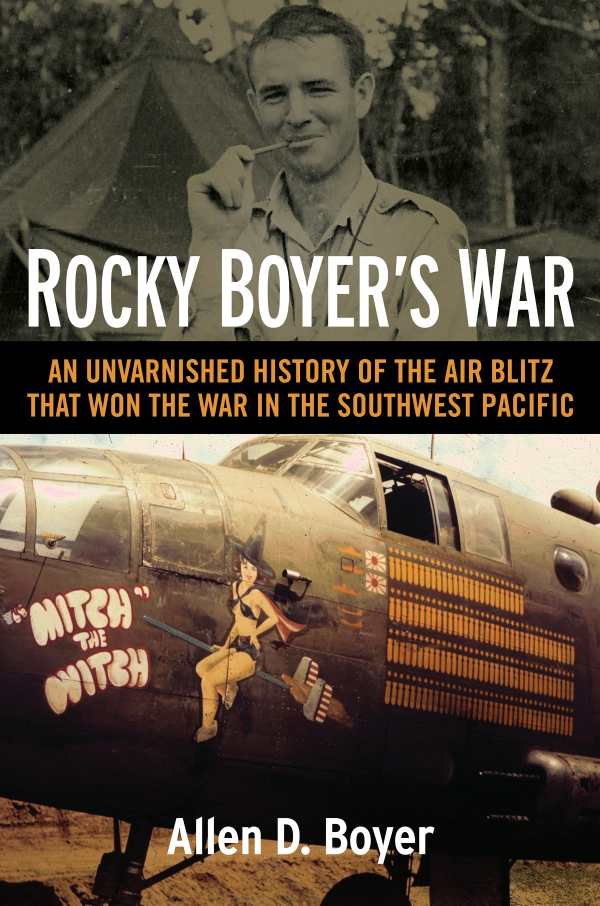
Rocky Boyer's War
An Unvarnished History of the Air Blitz that Won the War in the Southwest Pacific
Rocky Boyer’s War is Allen Boyer’s tribute to his father’s service, but the book also stands tall with other scholarly work on the Pacific war.
To tell the story of the successful Allied air blitz against the Japanese in the Southwest Pacific, Allen D. Boyer draws on the unauthorized diary of his father, thus removing the romance and including scandal, office politics, accidents, bad judgment, and trail of bodies that “unquietly marked the way.” In Rocky Boyer’s War, Allen D. Boyer pays homage to the wry, sardonic observations of his father yet skillfully incorporates the diary into a comprehensive, assiduously researched history of the Pacific war.
Rocky Boyer served in World War II with a unit that leapt to the Philippines. He planned and installed communications equipment in support of the war effort. He also saw combat and faced shellfire. Meanwhile, he took notes.
Rocky’s diary does not reflect the “Pacific war of the standard histories” that dwell on glory and heroics. Rocky tells of a bombing raid in which fifty-four planes turned back from a mission; on encountering bad weather, they had to drop their bombs in the ocean. He remarks on a tent-mate who slept with a .45 under his pillow, “for fear of the enlisted men.” And he speaks of a pilot’s death caused by leaflets caught in the air intake.
Allen Boyer’s history incorporates and expands upon the diary. He sometimes clarifies or corrects Rocky, and he is expert at adding valuable context. His well-rounded profiles of the major players in the conflict—George Kenney, Ennis Whitehead, William Tennille, Ralph O. Brownfield, and many other notables—are evidence of his research and rendering skills. His focus, though, is expert analysis on the planes, the missions, the strategy, and the war’s progress—the big picture that Rocky had neither the time nor the perspective to cover.
Rocky Boyer’s War is Allen Boyer’s tribute to his father’s service, but the book also stands tall with other scholarly work on the Pacific war, much of which Boyer draws upon and cites.
Reviewed by
Joe Taylor
Disclosure: This article is not an endorsement, but a review. The publisher of this book provided free copies of the book to have their book reviewed by a professional reviewer. No fee was paid by the publisher for this review. Foreword Reviews only recommends books that we love. Foreword Magazine, Inc. is disclosing this in accordance with the Federal Trade Commission’s 16 CFR, Part 255.
